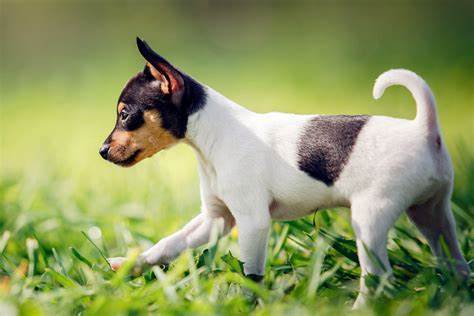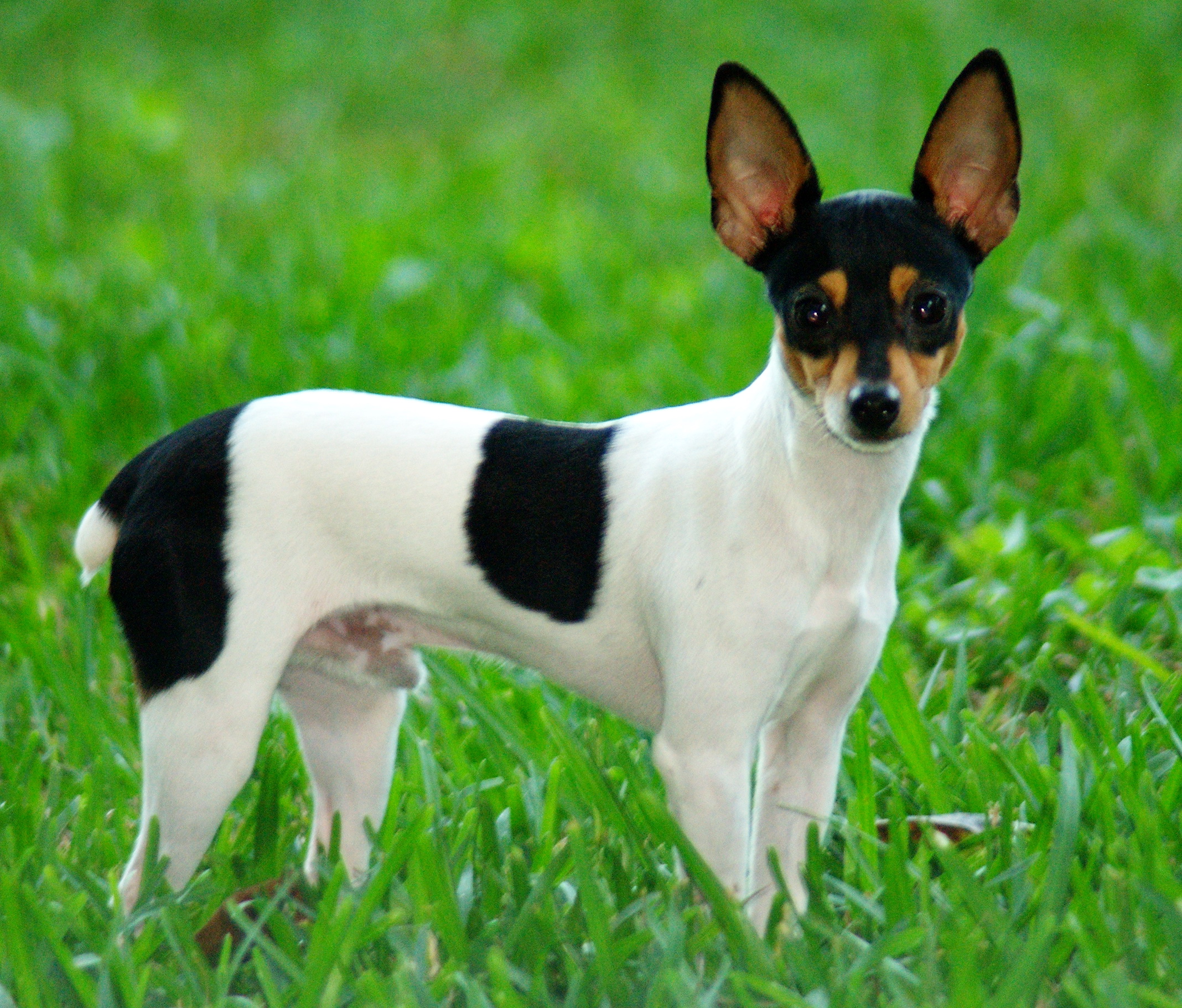
The Toy Fox Terrier, affectionately called the TFT, is a uniquely American breed developed in the early 20th century. Bred from the Smooth Fox Terrier, with infusions of other toy breeds such as the Chihuahua, Miniature Pinscher, and Italian Greyhound, the Toy Fox Terrier was designed to retain the lively spirit and hunting instincts of its larger forebear in a smaller, more companionable package.
Originally prized for their versatility on farms as both vermin hunters and alert watchdogs, Toy Fox Terriers also gained popularity as performers in traveling circuses, where their intelligence, agility, and showmanship delighted audiences. The United Kennel Club (UKC) recognized the breed in 1936, and the American Kennel Club (AKC) followed in 2003.
Toy Fox Terriers remain a beloved companion in the United States and abroad, admired for their combination of terrier tenacity and toy dog affection. Their adaptability, compact size, and outgoing personality make them ideal for both urban and rural homes.
The breed is appreciated by families, seniors, and competitive dog sport enthusiasts alike, often excelling in agility, obedience, and trick competitions.
The Toy Fox Terrier is a small, elegant, and athletic dog with a sleek, refined build.
• Height: 8.5–11.5 inches (22–29 cm)
• Weight: 4–9 pounds (1.8–4 kg)
• Build: Compact, square, and balanced
• Coat: Short, smooth, and glossy
• Color: Always predominantly white with colored markings; recognized patterns include tricolor (black, tan & white), white & black, white & tan, and white & chocolate
• Head: Distinctive, wedge-shaped, with erect, V-shaped ears
• Eyes: Dark, round, and expressive
• Tail: Set high and carried upright (often docked in the US)
Toy Fox Terriers are spirited, intelligent, and affectionate companions with a lively and entertaining demeanor.
• Energetic: Playful and full of zest without being hyperactive
• Loyal: Forms strong bonds with their human family
• Clever: Quick learners, eager to please, and love showing off tricks
• Alert: Excellent watchdogs, quick to announce visitors
• Confident: Bold and self-assured, often unaware of their small size
Despite their terrier roots, TFTs are typically more biddable and less stubborn than other terriers, thanks to the influence of their toy breed ancestry.

The Toy Fox Terrier is perfect for:
• Individuals or families seeking a small, active, and engaging companion
• Homes looking for a low-maintenance yet intelligent and entertaining dog
• Dog sport enthusiasts interested in agility, obedience, or trick training
It may not be suitable for:
• Very young children (due to their small size and fragility)
• Homes where they would be left alone for long hours (they crave interaction)
TFTs are relatively easy to care for but thrive with regular interaction and activity.
• Exercise: Moderate; daily walks and indoor playtime suffice
• Training: Positive reinforcement works best; start early socialization
• Grooming: Minimal; weekly brushing and occasional baths
• Living Environment: Adaptable to apartments and houses; sensitive to cold
• Feeding: High-quality small-breed diet, mindful of portion control
Toy Fox Terriers are generally healthy and long-lived, with a typical lifespan of 13 to 15 years. Potential health concerns include:
• Patellar luxation
• Legg-Calvé-Perthes disease
• Allergies
• Dental issues (common in small breeds)
Regular veterinary care and dental hygiene are key to their wellbeing.

• Miniature Pinscher: More assertive and independent; TFTs are more biddable
• Rat Terrier (Toy variety): Slightly larger and more rugged
• Chihuahua: Less terrier-like and more reserved with strangers
If you’re looking for a clever, compact, and lively companion who is as happy snuggling on your lap as chasing toys in the yard, the Toy Fox Terrier could be a delightful addition to your home.
Reputable breeders prioritize health testing and sound temperaments. Consider contacting the American Toy Fox Terrier Club or attending local dog shows to meet breeders and enthusiasts. United Pet Club can assist new TFT owners with microchipping, health record keeping, and travel documentation for their petite companions.